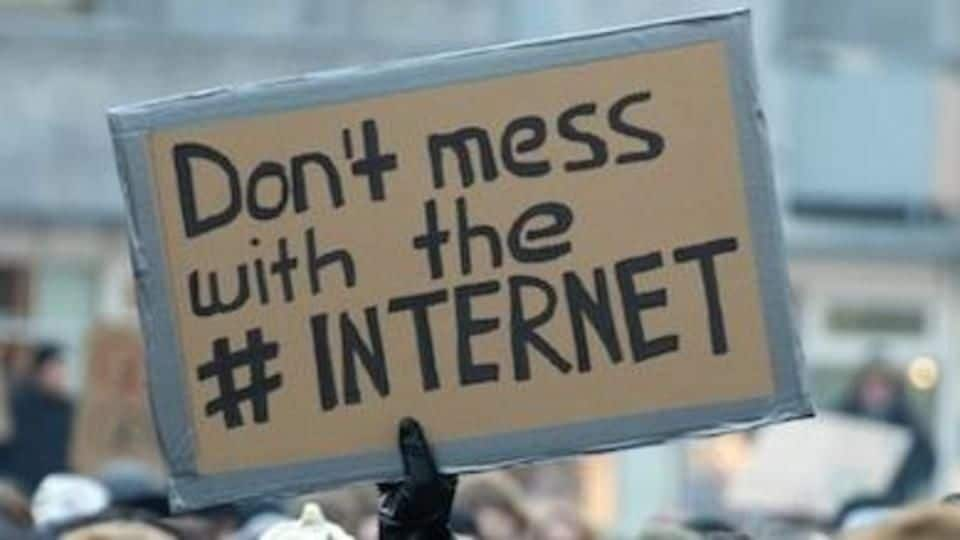
US regulator repeals Obama-era net neutrality rules, amid widespread criticism
What's the story
The US Federal Communications Commission (FCC) has voted 3-2 in favor of dismantling net neutrality. The vote allows Internet service providers (ISPs) to increase or decrease data speeds for different websites' data and charge customers for the services they access. Protests erupted outside the FCC building prior to the vote against the changes, which critics argue will make the internet less open and inaccessible.
Rules
Why were net neutrality rules introduced in America?
The Obama-era net neutrality rules were brought in to stop internet companies, which are part of large media conglomerates, from attempting to block or slow websites/apps of competing services. Net Neutrality supporters have argued that today's web owes its existence to an open internet. This has allowed companies such as Skype to compete with gigantic telecom providers and Netflix to revolutionize the media landscape.
Explained
What the new rules entail?
The FCC voted to dismantle net neutrality which prevented ISPs " from charging websites more for delivering certain services or blocking others should they, for example, compete with services the cable company also offers," the Guardian notes. FCC Chairman Ajit Pai has argued that the changes would facilitate innovation and help bring faster internet connections nationwide. He feels the change is "restoring internet freedom."
Information
Huge victory for Trump appointee Ajit Pai
Dismantling net neutrality represents a major victory for Pai, a former lawyer for ISP Verizon and a Donald Trump appointee. Pai has long criticized the net neutrality rules established by former President Barack Obama in 2015.
Criticism
Dissenting FCC members "outraged" over move
Pai and two fellow Republicans voted in favor of repealing net neutrality. FCC commissioner Mignon Clyburn, a Democrat, voted against it saying she was "outraged because the FCC pulls its own teeth, abdicating responsibility to protect the nation's broadband consumers." She was joined by fellow Democratic commissioner Jessica Rosenworcel who called the repeal process "corrupt" and "misguided." Pai dismissed their claims as "outlandish."